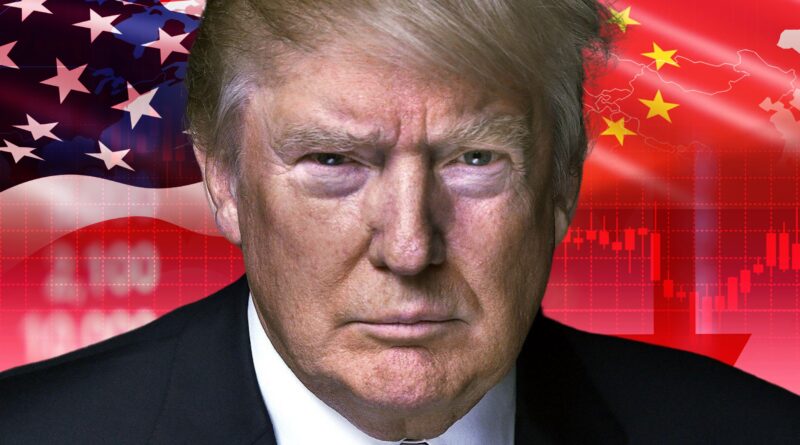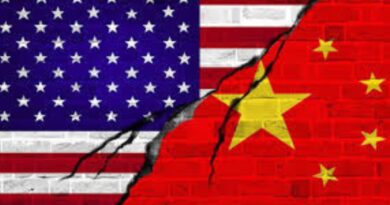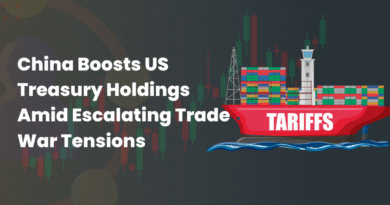How Trade Wars Are Driving Investor Recalibration Instead of Collapse
How Trade Wars Are Driving Investor Recalibration Instead of Collapse
Trade wars usually sound like bad news for investors. You hear about rising tariffs, government disputes, and market tensions. Naturally, you might assume that investments would tank. But here’s the twist: instead of causing a financial collapse, trade wars are pushing investors to recalibrate their strategies.
Curious how? Let’s dive into it.
What Is Investor Recalibration?
Investor recalibration simply means adjusting investment strategies to fit new circumstances.
When big global events happen — like trade wars — investors don’t just pull out of the market. Instead, they rethink:
- Where they are investing
- Which industries they believe in
- How they can manage risks better
Think of it like shifting your weight when riding a bicycle across rough terrain. You don’t stop riding; you just adjust to keep balance.
Why Trade Wars Aren’t Crushing the Market
Trade wars between powerful economies like the United States and China have certainly caused some headaches. But here’s why they haven’t crushed global markets:
- Global trade patterns are adapting.
- Investors are finding new opportunities.
- Governments are taking measures to support their economies.
For example, when U.S. tariffs made some Chinese goods more expensive, companies didn’t just wait around. Many moved their factories to countries like Vietnam or Mexico. This kept supply chains alive and offered investors new places to put their money.
How Investors Are Adjusting Their Game Plans
Instead of panicking, investors are moving their money to different sectors and regions. Here’s what’s happening:
1. Diversifying Investments
Putting all your eggs in one basket isn’t smart, especially during a trade war.
- Investors are spreading investments across countries.
- They’re balancing between riskier assets like stocks and safer ones like bonds.
This way, if one market takes a hit, the whole portfolio doesn’t crash.
2. Exploring Emerging Markets
Trade tensions are making some traditional markets less attractive. So, investors are exploring new regions.
Countries in Southeast Asia, Latin America, and Africa are starting to grab attention. They offer fresh business opportunities and lower risks when compared to heavily sanctioned or tariff-affected regions.
3. Betting on Domestic Growth
Some investors are focusing more on home markets. Instead of worrying about international tariffs, they’re investing in local businesses that could benefit from new trade policies.
For instance, when tariffs are placed on imported steel, domestic steelmakers often gain. Smart investors are spotting these chances.
4. Taking Advantage of Currency Shifts
Trade wars often cause currency fluctuations. A weakening dollar or yuan can create windows to make profits.
Investors who watch exchange rates closely can jump into favorable foreign investments or hedge their bets to protect against losses.
Real-World Example: Looking at 2023
Let’s bring this closer to home. After several years of trade tensions, 2023 showed us that global markets are far from collapsing.
Despite U.S.-China disputes, overall global trade volume even grew compared to earlier years. Smart investors stayed active. They diversified. They adjusted.
A few investment trends that stood out:
- Increased investment in Southeast Asian tech companies
- Stronger moves into renewable energy as governments pushed green initiatives
- More popularity for gold and other safe-haven assets
Instead of doom and gloom, it was all about adapting with the times.
What This Means for You as an Investor
Whether you’re a seasoned investor or just dipping your toes in, trade wars don’t have to scare you.
Here’s how you can handle market shifts wisely:
- Stay informed: Keep an eye on global news and understand how policy changes can affect different industries.
- Be flexible: Don’t cling to one investment sector just because it worked before.
- Think globally: Sometimes the best opportunities aren’t in your home country.
- Manage your risks: Split your investments to avoid big shocks.
- Consult experts: When things get complex, professional advice can save you from costly mistakes.
Ask yourself: is your current investing strategy built to handle global shocks like trade wars? If not, it’s probably time to recalibrate.
The Bigger Picture: Trade Wars as a Catalyst, Not a Catastrophe
Trade wars may sound scary, but they often bring needed change. They encourage innovation, force companies to evolve, and open up new markets. For investors, this means new opportunities as much as new risks.
Instead of fearing changes in global trade, it’s smarter to embrace recalibration. Think of it as tuning your financial “engine” to run better over time.
Markets always adjust. Investors who adapt usually come out stronger.
Final Thoughts: Keep Calm and Recalibrate
The next time you hear about a new wave of tariffs or a heated trade dispute, remember: it’s not the end of the world for investors.
It’s a call to action.
Review your strategy. Find smarter, more diverse investments. Keep learning. And most importantly, stay flexible.
Trade wars aren’t causing investor collapse — they’re causing evolution.
Are you ready to adjust your portfolio for tomorrow’s opportunities?









